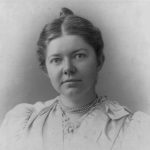Mark Gresham | 23 JUL 2025
Picture a Boston meetinghouse in 1776, its wooden pews filled with colonists singing in fervent harmony. Their voices rise with “Chester,” an anthem of defiance, its words—“Let tyrants shake their iron rod”—ringing like a musical call to arms:
This is the sound of William Billings (1746–1800), a tanner-turned-composer who gave America its first musical voice. As we continue EarRelevant’s “Year of American Music” series, celebrating the 250th anniversary of the Declaration of Independence, we turn to Billings, a self-taught revolutionary whose choral works laid the foundation for American classical music. His rugged, bold melodies captured the spirit of a nation breaking free, and his legacy echoes in today’s choral performances.
Here are the first, fourth, and fifth stanzas of the hymn:
- Let tyrants shake their iron rod,
And Slav’ry clank her galling chains,
We fear them not, we trust in God,
New England’s God forever reigns. - …
- The Foe comes on with haughty Stride;
Our troops advance with martial noise,
Their Vet’rans flee before our Youth,
And Gen’rals yield to beardless Boys. - What grateful Off’ring shall we bring?
What shall we render to the Lord?
Loud Halleluiahs let us Sing,
And praise his name on ev’ry Chord.
Born in Boston in 1746, William Billings was an unlikely pioneer. Partially blind in one eye, with little formal education and a modest trade as a tanner, he defied convention to become America’s first significant composer. In the crucible of the Revolutionary War, Boston pulsed with rebellion—taverns buzzed with patriotic songs, churches rang with psalms, and fifes and drums rallied soldiers. Billings, a singing-school teacher, channeled this energy into music that was raw, accessible, and distinctly American. Unlike Europe’s polished composers, he embraced a rough-hewn style, writing for ordinary colonists who gathered to sing in community. “Billings was the voice of the common man,” writes music historian Richard Crawford, “his music as bold and unpolished as the Revolution itself.” His work, rooted in the soundscape of 1776 that we explored last week, marked the birth of a national musical identity.
In 1770, Billings published The New-England Psalm-Singer, the first collection of original American choral music. This groundbreaking work broke from British hymnody by introducing “fuging tunes”—lively, overlapping vocal lines that gave singers a sense of freedom and interplay. The collection’s 120-plus pieces were designed to be sung more with passion than perfection. In its preface, Billings declared, “I think it best for every Composer to be his own Carver,” a manifesto of independence that mirrored the colonies’ fight for freedom. These works, like “David’s Lamentation,” brought sacred music to life with emotional intensity, inviting colonists to express their faith and defiance through song. Today, early music ensembles like Boston Baroque perform these pieces, connecting 2026 audiences to the revolutionary spirit of 1776.
“Chester,” from The New-England Psalm-Singer and The Singing Master’s Assistant (1778), became Billings’ most iconic work—a patriotic anthem that captured the fervor of the Revolution. Its lyrics blended sacred zeal with martial defiance, resonating with soldiers and civilians alike. Sung in churches and battlefields, “Chester” was a rallying cry, its robust melody cutting through the chaos of war. Imagine the thrill of hearing those voices unite, a chorus of rebellion against tyranny. Its enduring popularity, performed by choral groups in 2025 festivals, underscores its timeless power.
Billings’ influence extended beyond his compositions. His singing schools, where colonists learned to read music and sing in harmony, democratized musical education, laying the groundwork for America’s choral tradition. Later composers, such as Charles Ives, with his experimental nods to folk and hymnody, owed a debt to Billings’ bold originality. Yet, Billings faced challenges—poverty and declining fame in his later years—but his resilience mirrored that of the nation. His music, unrefined yet powerful, rejected European polish for an American ethos of independence and individuality. ■

Read more by Mark Gresham.







.png)